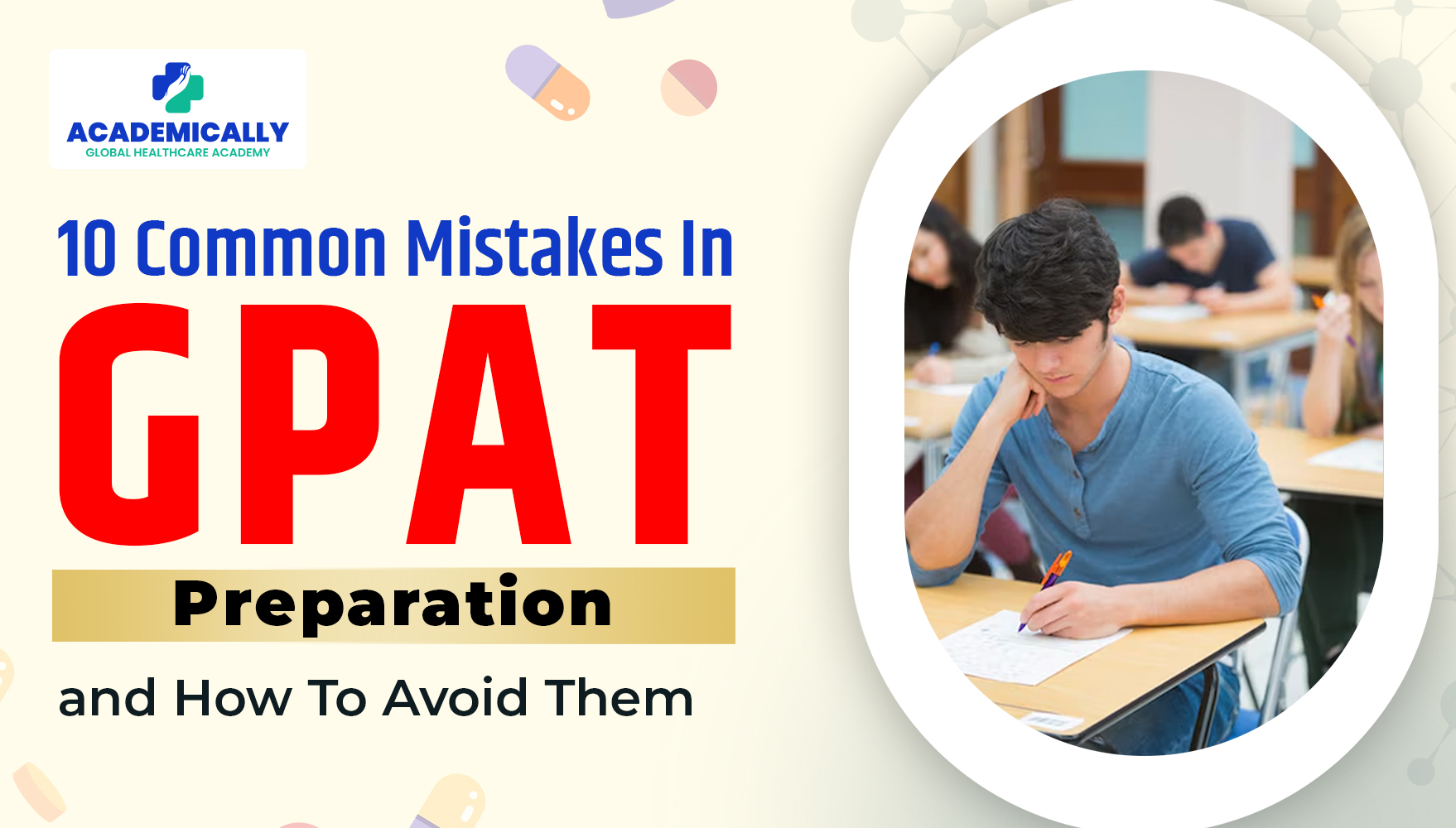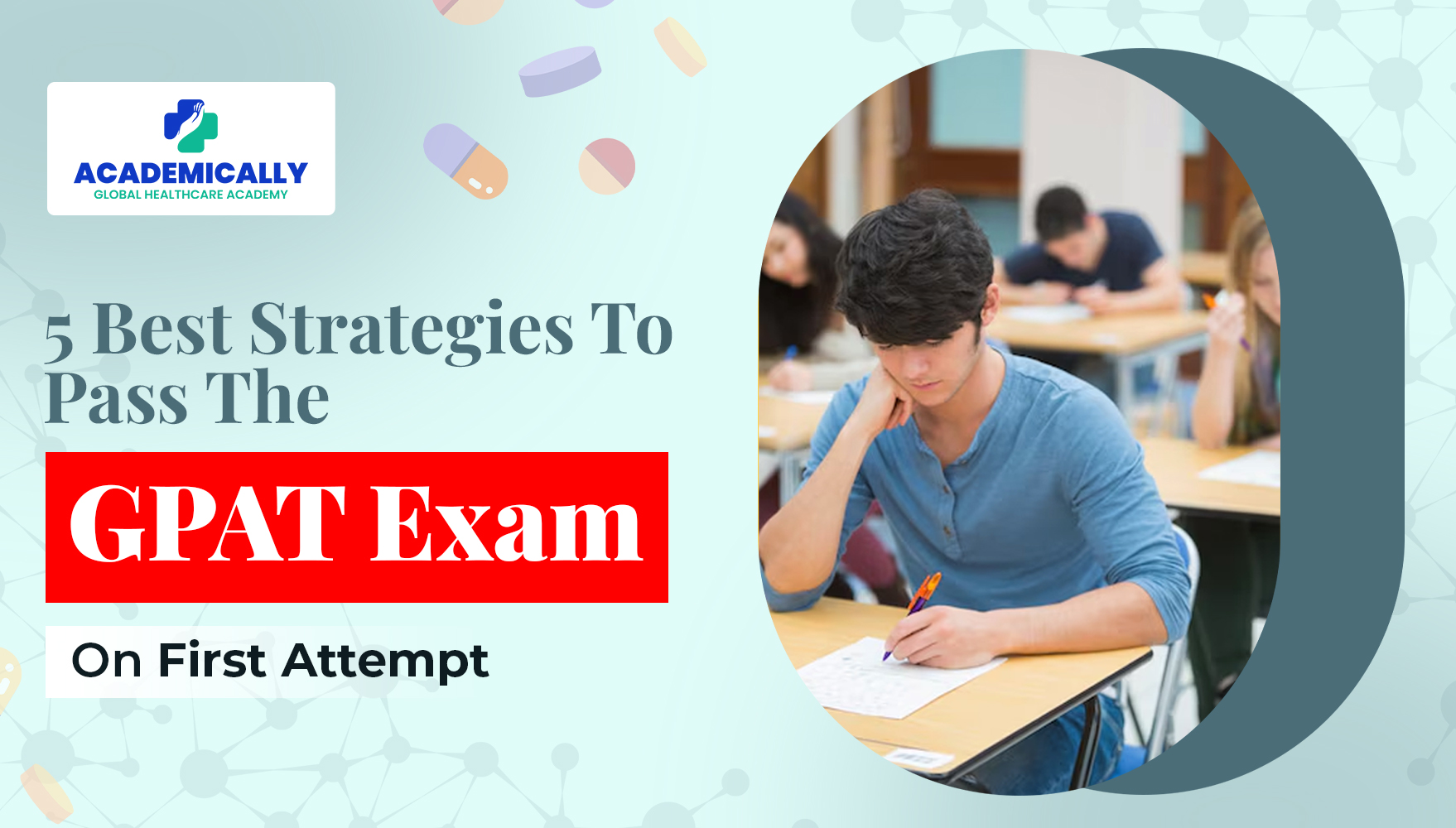1. Overthinking About Getting High Marks
Constantly worrying about achieving a specific score can lead to unnecessary stress and anxiety. Instead of focusing on marks, aim to master the syllabus and understand the concepts thoroughly. A strong foundation naturally leads to better scores.
Tip: Focus on consistent effort, daily improvement, and understanding the core concepts rather than worrying about the outcome.
2. Watching Unnecessary YouTube Videos
With the digital age. It’s common to rely on youtube channels for studying. While YouTube can be a great resource, it’s easy to get distracted by irrelevant content. Watching motivational or shortcut videos without practicing concepts can waste valuable preparation time.
Tip: Stick to reputable educational channels that align with the GPAT syllabus. Allocate fixed time slots for video-based learning and balance it with self-study and practice.
3. Starting a New Concept at the Last Minute
Attempting to learn entirely new topics just days before the exam often leads to confusion and superficial understanding. Merely memorising facts without understanding the underlying principles can backfire, especially for application-based questions.
Tip: Use the final weeks for revising familiar topics, solving mock tests, and consolidating what you’ve already studied. Avoid starting entirely new subjects close to the exam date.
4. Not Practicing MCQs
GPAT is an MCQ-based exam, and rote learning of the syllabus alone is insufficient. Many students overlook the importance of regular practice, which is critical for understanding question patterns and improving problem-solving speed.
Tip: Begin practicing MCQs as soon as you finish a topic or subject. This helps reinforce concepts and enhances retention. Mock tests and past question papers are particularly effective for preparation.
5. Not Joining a Preparation Course
Self-study is important, but many students miss out on the benefits of expert guidance and a structured approach provided by professional GPAT preparation courses. A good course can offer curated study material, time management strategies, and mock tests tailored to the exam format.
Tip: Research and join a reliable GPAT preparation course to receive mentorship and ensure a comprehensive study plan. For example: Academically’s GPAT Preparation Course is the best GPAT preparation course, here you will get all the resources and help to pass the exam on the first attempt.
6. Avoiding Revision and Skipping Topics
Overconfidence can lead some students to avoid revising familiar topics, assuming they have already mastered them. Others may skip easier topics or ignore high-weightage ones, thinking they are either too simple or not worth the effort. These mistakes can result in avoidable errors or missing out on crucial marks during the exam.
Tip: Prioritise a well-rounded revision plan that includes all topics—easy, difficult, and high-weightage. Regularly revisit previously studied material to reinforce your knowledge and minimize mistakes.
7. Not Practicing Numerical Problem
Numerical problem-solving is a crucial component of the GPAT exam. Many students focus too much on theory and underestimate the importance of numerical practice, which often leads to difficulties in applying concepts during the exam. Without regular practice, students may struggle with calculation-based questions that require speed and accuracy under time constraints.
Tip: Dedicate a specific portion of your study time to practicing numerical problems daily. Work on problems from standard textbooks and GPAT preparation guides. Focus on understanding formulas and solving a variety of questions to enhance speed and accuracy.
8. Studying Too Many Books
The availability of numerous study resources often leads students to overburden themselves by referring to too many books for the same subject. This not only creates confusion but also results in wasted time trying to reconcile different explanations for the same topic.
Tip: Stick to standard textbooks and concise study materials tailored for GPAT, such as GPAT preparation guides and solved question banks.
9. Poor Time Management
Inefficient time management is a major barrier for many GPAT aspirants. Procrastination, spending excessive time on certain topics, or failing to adhere to a study schedule often results in incomplete syllabus coverage and rushed revisions. This lack of planning can also lead to neglecting practice tests and mock exams, which are critical for exam readiness.
Tip: Create a realistic, well-structured study plan that allocates time to each subject, practice, and revision. Break down the syllabus into manageable sections and set weekly goals to track progress. Use tools like planners or apps to keep yourself accountable. Additionally, schedule regular mock tests to evaluate your time management skills during the actual exam.
10. Preparing for Multiple Exams at a Time
Many students attempt to prepare for multiple competitive exams, such as GPAT, NIPER, or state-level pharmacy entrance tests, simultaneously. This approach divides their focus and can lead to inadequate preparation for all exams. Each exam has unique syllabi, patterns, and difficulty levels, making it challenging to excel in all without a targeted strategy.
Tip: Prioritise your goals and focus on one primary exam at a time. If you need to prepare for multiple exams, identify overlapping topics in the syllabi and start with those. Once the common portions are covered, allocate time to address the unique aspects of each exam. A balanced, focused approach will ensure effective preparation without overwhelming yourself.
Final Words
GPAT preparation can be overwhelming, but avoiding these common mistakes can significantly enhance your chances of success. By focusing on consistent practice, time management, and a well-rounded revision strategy, you can ensure comprehensive preparation.
Prioritise mastering key concepts, maintaining a balanced approach to studying, and using resources effectively. Remember, staying organised, focused, and strategic will help you navigate the challenges of the exam and perform confidently on test day.
If you need further guidance or help with the preparation, book a free one-on-one counselling session. You can do it by filling up this form.






